We have just concluded MENOG 17 in Muscat, Oman, which coincided with MENOG’s ten-year anniversary. It is no secret that MENOG has seen several ups and downs during the ten years since it came into existence. This journey has resulted in the accumulation of a tremendous amount of experience that has been vital in enabling us to organise one of our most successful events to date.
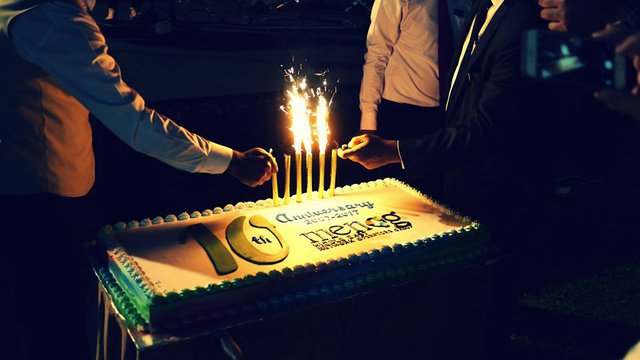
Although there’s no obvious objective way to measure the success of a regional event like MENOG, it is safe to say that MENOG 17 ticked all the boxes we could have hoped it to. Hundreds of attendees showed up and stayed on till the very end, with everyone making an obvious effort to engage with the discussions and presentations. Of those present, 43% were Omani locals and 72% were Middle Eastern, with representatives from all fourteen countries in the Middle East. This in itself was a huge accomplishment!
Even more importantly, there was an unprecedented amount of positive energy buzzing throughout this event. We, the MENOG team, feel we have found a working formula for technical engagement in the Middle East and felt we should document it and make it available for others.
Location, Location, Location
It’s no secret that a desirable travel destination helps make for a successful meeting. However, having a local host who is invested in seeing the event succeed is priceless. For MENOG 17, we were lucky enough to have both. 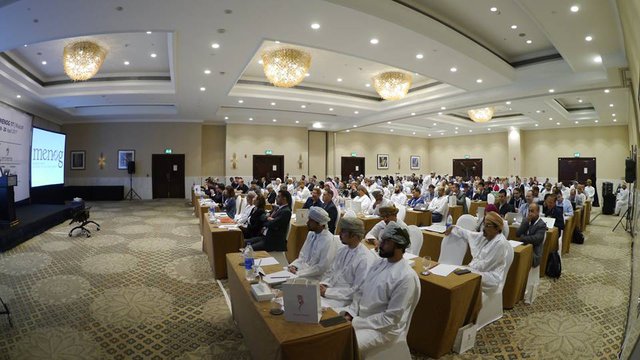
Several pre-event activities were organised with the local academic community, as well as other events covering IPv6, DNS and security to the different stakeholders in Oman as a build up for the event.
Seeding the Community (Building Communities, Not Audiences)
The notion of “if you build it they will come” yields at best a fleeting glimpse of success. Sure: if you build it, you increase the odds of them coming. However, if growth and sustainability are what you are aiming for, then you have to put in the work to make it succeed.
For a regional event like MENOG to succeed you need to foster the growth of communities within the broader Internet community. By actively listening to these communities, we within the MENOG team have come to understand the work needed to build and engage with them on a national level. With the increased number of MENOG Roadshows, we have been able to pursue this on a scale we were never able to achieve before. The goal is to identify the basic common denominators and interests among these communities, then channel them back into MENOG.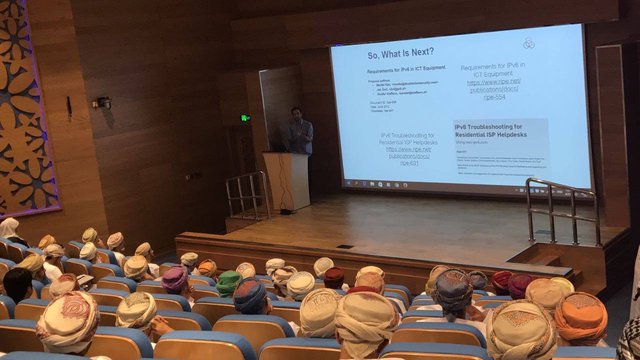
Another good example of local efforts paying off regionally came out of the fact that several operators that MENOG and the RIPE NCC had been working with over the years, through the MENOG IPv6 Roadshow, were present and more than willing to share their experiences with others. Du, the Emirati service provider, even gave an update on their current deployment levels and issues.
Investing in People
We, the MENOG team, believe that a fundamental part of our role is to identify those with the potential and willingness to do more and to help them get on the right path to fulfil their ambitions while giving back to the community as they do so. My personal favourites are those who you meet at MENOG and tell you: “We came on our own expense, using our leave days to attend MENOG and learn more”. These are exactly the people you want to make sure you support for future events.
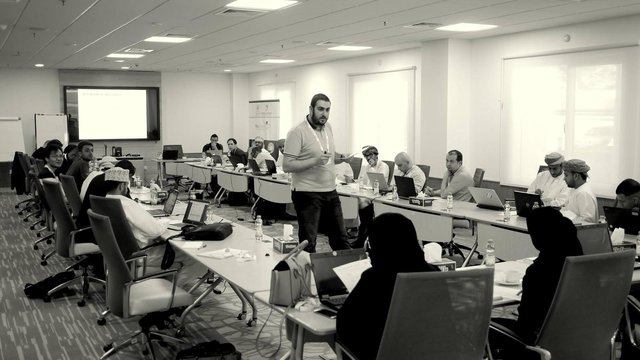
The MENOG IPv6 Train the trainer (TTT) is a great example of this. We recently organised our second TTT workshop in the Middle East in Tehran, Iran. Four out of the eleven attendees ended up flying to MENOG, either as fellows, co-trainers for the IPv6 workshop or by convincing their company of the value of them attending MENOG.
Another great example of people giving back to the local community is Jad El-Cham, whom we originally met in 2015 as an attendee of the first TTT workshop held in Dubai, UAE. Jad is now a MENOG accredited trainer and was one of the lead trainers in the IPv6 workshop at MENOG 17. Jad has co-trained around ten IPv6 Roadshows so far and has been a great addition to the MENOG family.
Building Partnerships
MENOG, like most NOGs, covers its operational cost through sponsorship. The MENOG team took a look at the hosting and sponsorship requirements and started reducing, diversifying and customising the available packages as much as we could. Smaller sponsorship packages allow for more organisations to get involved and have a vested interest in making the event a success. We have managed to attract new sponsors in addition to our long-standing patrons.
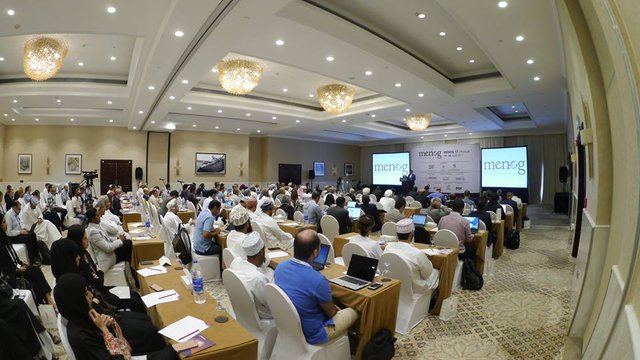
A great example of this partnership is the fact that MENOG now organises, in cooperation with ISOC and PCH, the IXP day zero activities where all the Middle East established and aspiring IXPs are offered funds to subsidise the cost of their travel to attend MENOG, share their experiences and meet the other global and regional players.
MENOG has also strengthened its partnerships with ICANN, ISOC and PCH so as to expand the Roadshows tracks to include DNS, peering and interconnection tracks, in addition to the IPv6 Roadshows it had been partnering with the RIPE NCC on for years.
Spreading the Word
Broadcasting mass open-ended meeting invitations is just as effective a marketing tool as spam. Emails leading with “Dear Madam / Sir”, or even the more casual “Dear colleague”, don’t work, at least not in the Middle East.
Through the national engagements and partnerships listed above, we are now able to identify which organisations and/or individuals we are keen on having at MENOG. Based on that we customise the invitations and agenda to address their identified needs.
Not Everything Works
The mailing list is not as active as other NOG mailing lists. There are many reasons for this, and while we are still keen on fixing the issue, we realise that is not necessarily an indication of how effective MENOG is in the region. The real indication is in how diverse and engaged our attendees are and how much change happens with every Roadshow, plenary or other form of engagement we organise.
Mistakes, We’ve Made a Few
We’ve also learned that mistakes are ok, as long as we learn from them. We are not afraid to take risks; we are still trying to figure out our way and we feel we are getting better and better at this as we go. The MENOG team is full of hard working dedicated people that are keen to make MENOG into the best version of itself.

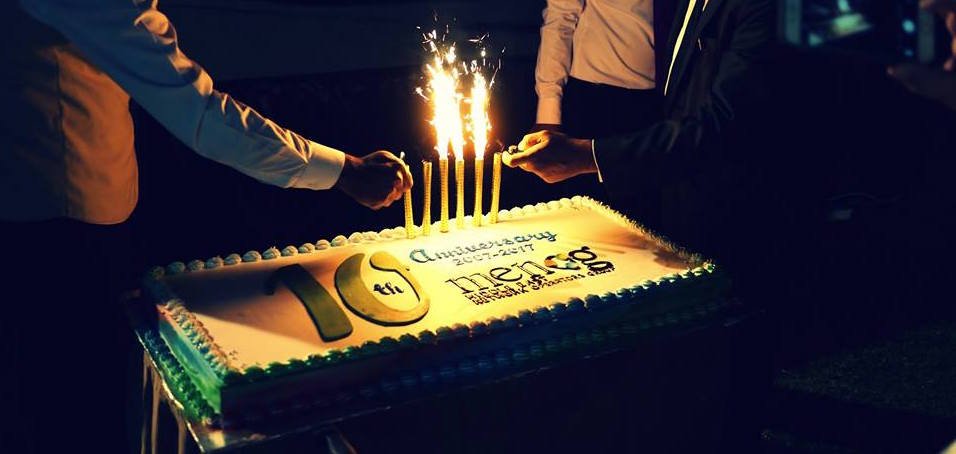



Comments 1
The comments section is closed for articles published more than a year ago. If you'd like to inform us of any issues, please contact us.
Alexander Isavnin •
And MENOG also joined ISPCP - great achivement!